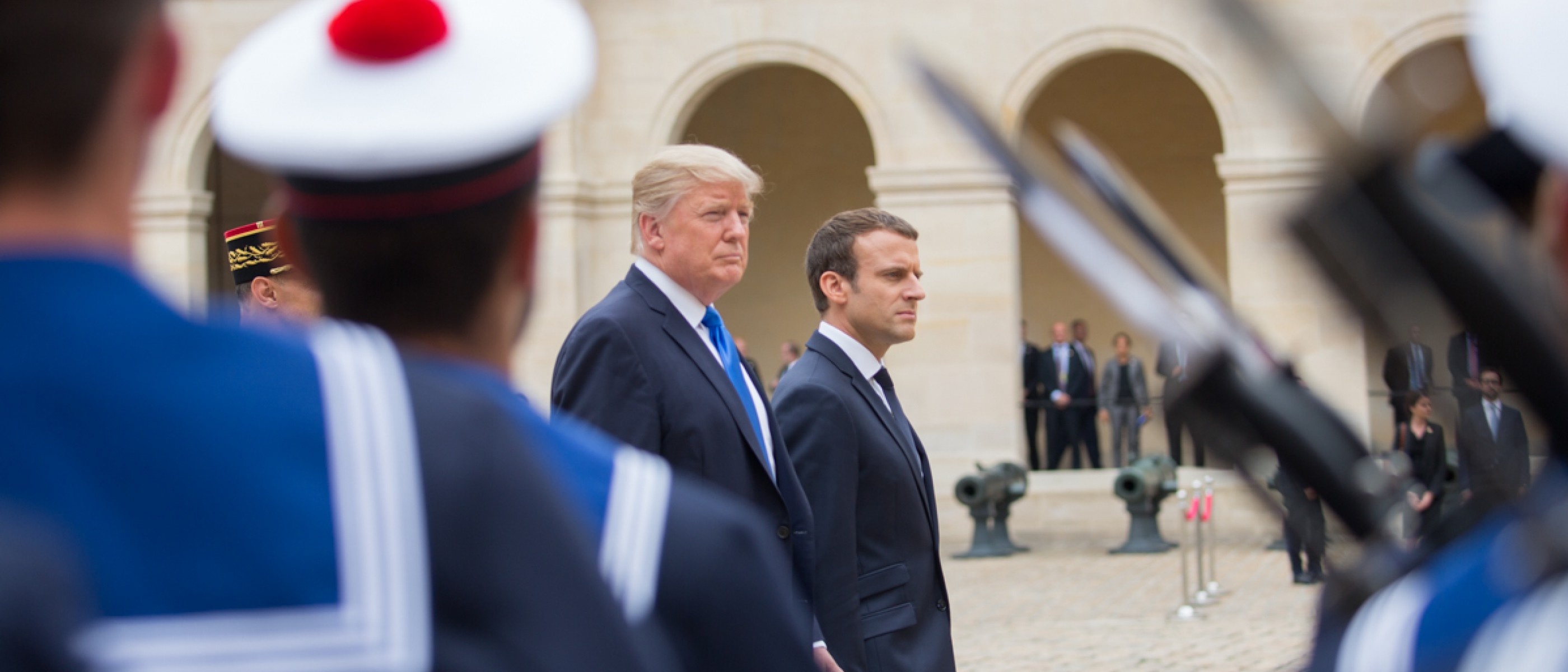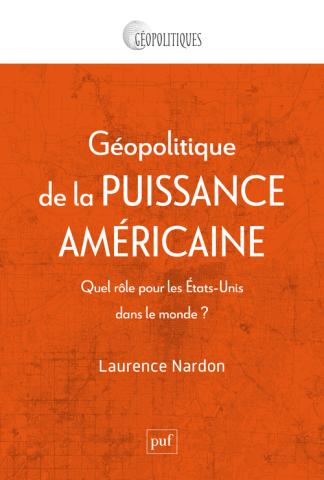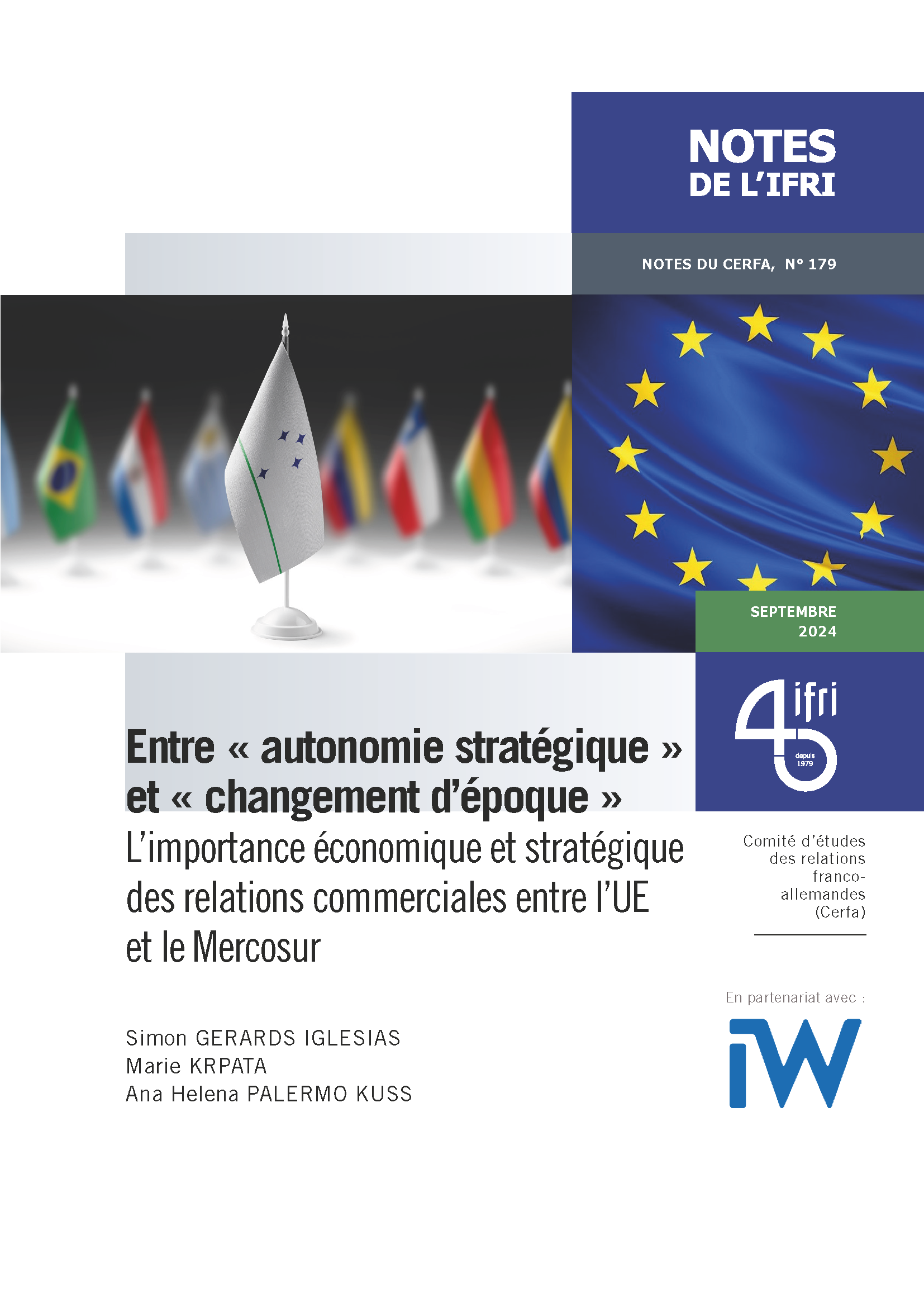Trade Wars: A French Perspective
The Section 232 tariffs on steel and aluminum announced by the United States in March would, if applied, have little direct impact on the French economy, but rather point toward a broader trend of protectionism and economic nationalism and a widening gap in transatlantic relations that is likely to have far-reaching implications for France.

More than the tariffs themselves, it is the radical shift in America’s international role – from a core driver of a liberal, multilateral order to a unilateralist disruptor – that is the most problematic. Washington’s incessant beating on the war drums of trade across the globe and the broader unilateralist stance taken by the Trump administration on questions such as climate change or Iran (JCPOA) have severely undercut efforts to confront global challenges in a constructive manner.
The direct and indirect impacts of a trade war
While steel and aluminum are indeed symbolic sectors, French exports of these products to the US totaled only USD 711 million in 2017, accounting for just 1.6% and 1.3% of all US steel and aluminum imports, respectively. Should Washington decide to remove exemptions for the EU, France could expect a direct, initial loss of roughly USD 200 million, according to calculations compiled by CEPII. While this remains rather insignificant in overall terms, the effects of trade displacement would perhaps be more painful, as global supplies of steel and aluminum (already in a glut) seek out other markets (particularly in Europe). Yet the role of these sectors in the French economy has been in steady decline for decades. The impact would be larger for others in Europe – for instance Germany – and France’s position so far has been to support a strong European stance on this issue.
Since US president Donald Trump’s decision on 8 May to withdraw from the JCPOA on Iran, new questions have surfaced over the potential for a broader economic fallout between Europe and the United States. The risks of a transatlantic trade war over Iran are rather minimal, however, and French president Emmanuel Macron has explained that France has no intention of starting a trade war with Washington over the JCPOA. Indeed, the ultimate goal is a successful resolution of the Iranian nuclear question, and perhaps some form of broader agreement relating to Iran’s ballistic missile program and its support for terrorism. These will be unlikely without a return of the US and exchanging sanctions or sparking a trade war with Washington would not be likely to achieve France’s goals.
A broken partnership?
The rise in economic tensions, including the refusal of the US so far to grant a permanent exemption to the EU from Section 232 tariffs on steel and aluminum, has shown the clear limits of president Macron’s efforts to build a close personal relationship with Donald Trump. (President Trump was made guest of honor at France’s Bastille Day parade last July, and treated the French president with the first official state visit of the Trump presidency in April of this year.) Indeed, the argument underpinning the Section 232 tariff measures relates to US national security, and yet France and many other European NATO allies are made to grovel repeatedly before Washington. Moreover, the narrow focus of the Trump administration on tariffs and trade imbalances is a concern. The French Trade Minister, Jean-Baptiste Lemoyne, has explained that France rejects the notion of limited negotiations on tariffs and would push to see broader-based negotiations with Washington on trade liberalization. A key goal for France will be to ensure that the Trump presidency doesn’t completely undo the rules-based system of international trade.
Macron’s bet on globalization must pay off
The political stakes for France, and for President Macron in particular, are high. Macron’s election was hailed as a stop-gap to the wave of populist, nationalist advances in Europe that began even before Brexit, driven in large part by what is seen as the excesses of liberal capitalism and globalization gone wild, which culminated in the global financial crisis. Yet Macron’s victory over populism is only tentative, as the most recent elections in Italy clearly suggest.
Since his election, Macron has embraced a European future for France and a view of economic liberalization that has so far translated into a series of contested economic reforms at home. His bet is that by making the French economy more flexible and competitive on the global stage, France can position itself as a leader in the industries of the future and be in a better position to define the rules for the next wave of globalization – one in which rapid technological advances are likely to have profound social, economic and political implications. Macron sorely needs this bet to pay off. It should not be forgotten that in the first round of the 2017 presidential election, 45% of French voters opted for candidates on either the extreme right or extreme left, and that skepticism remains high more than a year after Macron’s election.
If the French president is unable to provide tangible results for his vision of a globalized France, his victory over populism could very likely be short lived. This task is made all the more difficult when Washington holds a narrow view of American interests.
This article was originally published on the website of the Italian Institute for International Political Studies (ISPI) -- Trade Wars: A French Perspective

Contenu aussi disponible en :
Régions et thématiques
Utilisation
Comment citer cette étudePartager
Centres et programmes liés
Découvrez nos autres centres et programmes de rechercheEn savoir plus
Découvrir toutes nos analyses
Géopolitique de la puissance américaine
Qu’est devenue la puissance américaine ? Si les États-Unis veulent encore diriger le monde, en sont-ils toujours capables ?
DOSSIER RAMSES 2025 N° 2 – États-Unis : l'empire inquiète...
La puissance américaine reste dominante. Mais ses échecs extérieurs et l'effervescence des crises la brident dans les redéploiements stratégiques annoncés. Plus grave : les divisions minent la société américaine : extrémisme, inégalités, drogues, guerres culturelles...
Iran : quelle stratégie pour les États-Unis à l’heure de l’embrasement proche-oriental ?
Le 15 octobre 2023, interrogé sur le risque de recrudescence des tensions à la frontière israélo-libanaise, Joe Biden en appelle à la raison : « Don’t ! Don’t ! Don’t ! ». Le propos intervient une semaine après une série d’attaques terroristes en territoire israélien coordonnées par le Hamas, qui cause la mort de 1 200 personnes.
Xi Jinping : les défis du troisième mandat
En octobre 2022, puis en mars 2023, Xi Jinping a été reconduit pour un troisième mandat, respectivement à la tête du Parti communiste chinois (PCC) et de la République populaire de Chine (RPC). Sa mainmise sur l’appareil politique chinois n’est plus à démontrer. Toutefois, les défis intérieurs et extérieurs s’accumulent et devraient compliquer sa gouvernance au cours des cinq années à venir.














